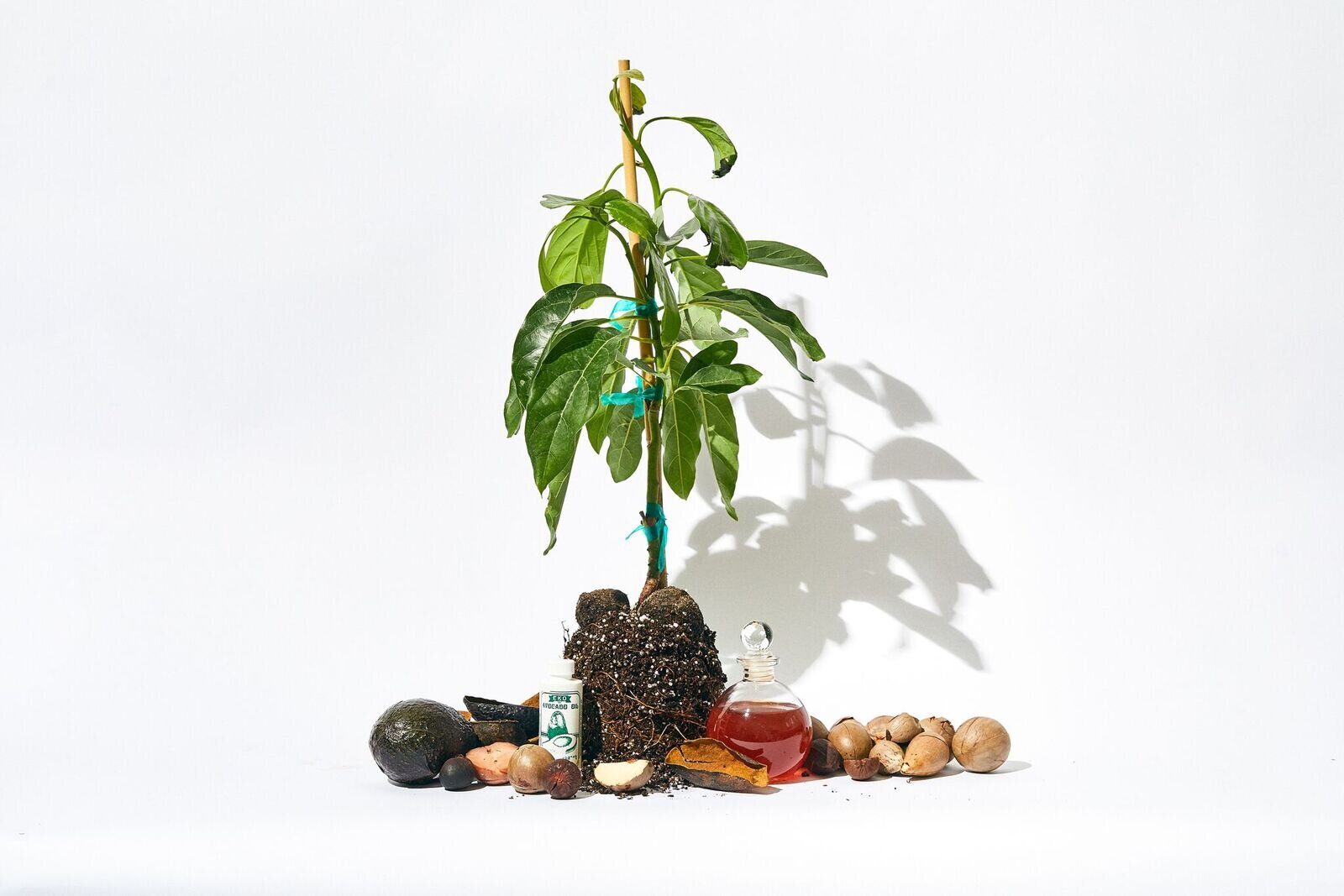AhuacatlAhuacatl: pear-shaped fruit with a rough leathery skin, smooth oily edible flesh, and a large stone (noun, Nahuatl)
Once only found in areas with tropical climates, avocados are now increasingly (and controversially) ubiquitous. An unlikely survivor of the Cenozoic era and praised by their taste and nutritional properties, avocados are ever-present, notwithstanding their luxury status (already in 1914, the price for one avocado in the U.S. would be equivalent to $24.90 in 2018).This popularity has brought diverse complications. From deforestation, to a profitable black market and even expensive injuries (surgeries related to "avocado hand" can cost up to $20,000). Even so, their consumption stays on the rise. In the U.S. alone, the yearly per capita consumption of avocados has increased from 1 pound in 1989 to 7 pounds in 2016.An often-overlooked property of the avocado is its dyeing capabilities: its seed capable of yield a blush tone onto fabric, which is highly dependable, due to the high tannins it contains.For more curiosities, please look at our Avocadopedia.





Ahuacatl seeks to explore the opportunities of circular economies by using alternative production methods and to activate conversations about waste in the food and textile industries.
Since 2017, Fragmentario has partnered with various New York based restaurants to collect their avocado seeds that would otherwise become waste and used them instead to deadstock silk and linen fabrics.
The project borrows its name from the word for avocado used by Aztecs in México before the colonization of the Americas. It was transformed into “aguacate” by the Spanish colonizers and then evolved into the English word “avocado”.







Partner Restaurants
2017Avocaderia2018
Barrio Chino
Food Story
L-Mo’s
2019Food StoryGuacuco2020CosmeFood StoryChipotle WilliamsburgSweet Green WilliamsburgBy Chloe Williamsburg2021Food StoryInternationalGaliciaAmantea
Osaka

